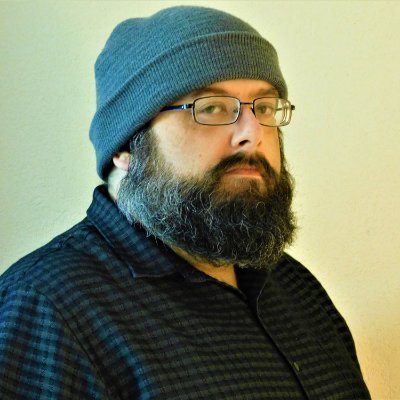Al Ewing opens up about Marvel's New Age of Space and its ties to Guardians of the Galaxy, SWORD, X-Men, Immortal Hulk, more
SWORD, the Guardians of the Galaxy, and more are building up to something big for Marvel Cosmic
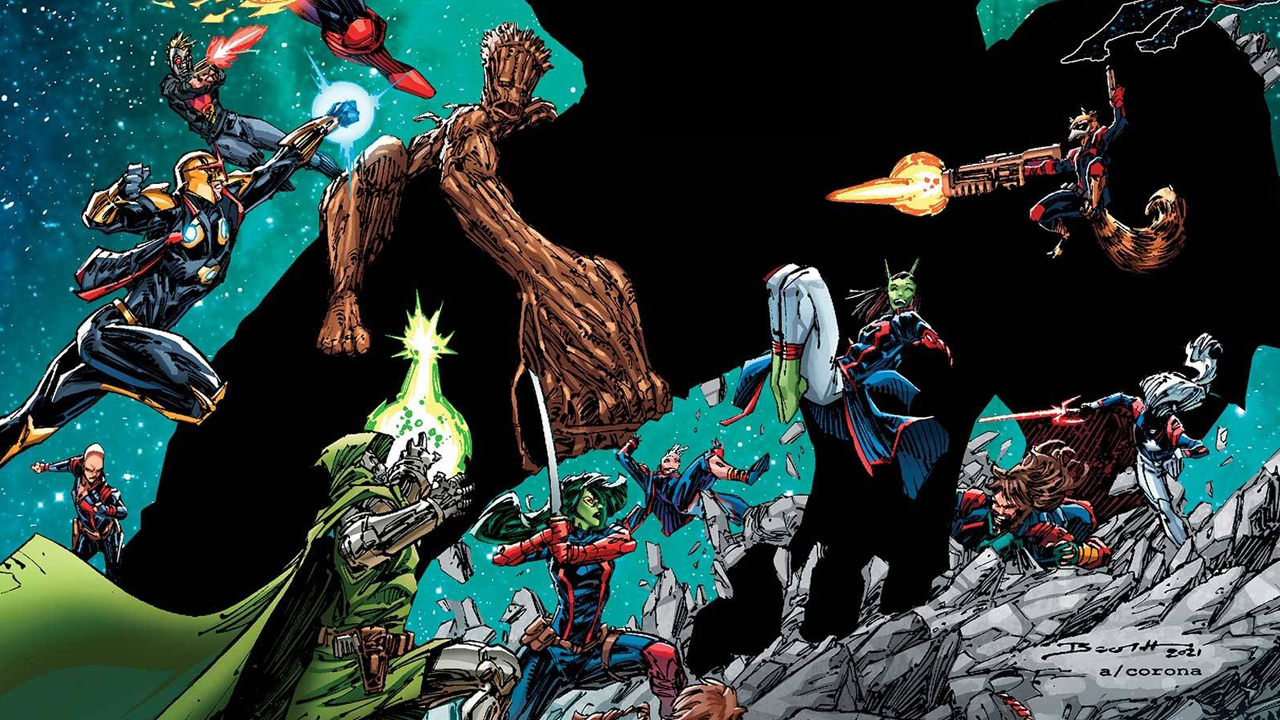
Marvel has been heralding a new era for their space-based books with the phrase 'The New Age of Space.' Launched last month with the now-superhero-y Guardians of the Galaxy #13, this new age has a dark turn ahead with the impending event 'The Last Annihilation'.
But what exactly is 'The New Age of Space' beyond the catchy name? Who is part of the burgeoning cosmic line, and what's on its way?
Writer Al Ewing has quietly become Marvel Comics' de facto cosmic writer, between his Guardians of the Galaxy run, the SWORD series, and co-writing the recent summer event Empyre - especially considering that mysterious coda set in the near future with Hulkling and the Guardians destroyed and Abigail Brand & SWORD telling them they warned them of this fate.
With all of that out there, Newsarama caught up with Ewing to talk about the 'big picture' aspect of Marvel's cosmic titles with 'New Age of Space' and the upcoming 'The Last Annihilation' crossover.
Newsarama: Al, beyond the catchphrase, what does Marvel's 'New Age of Space' signify? What's the guiding philosophy of the new era?
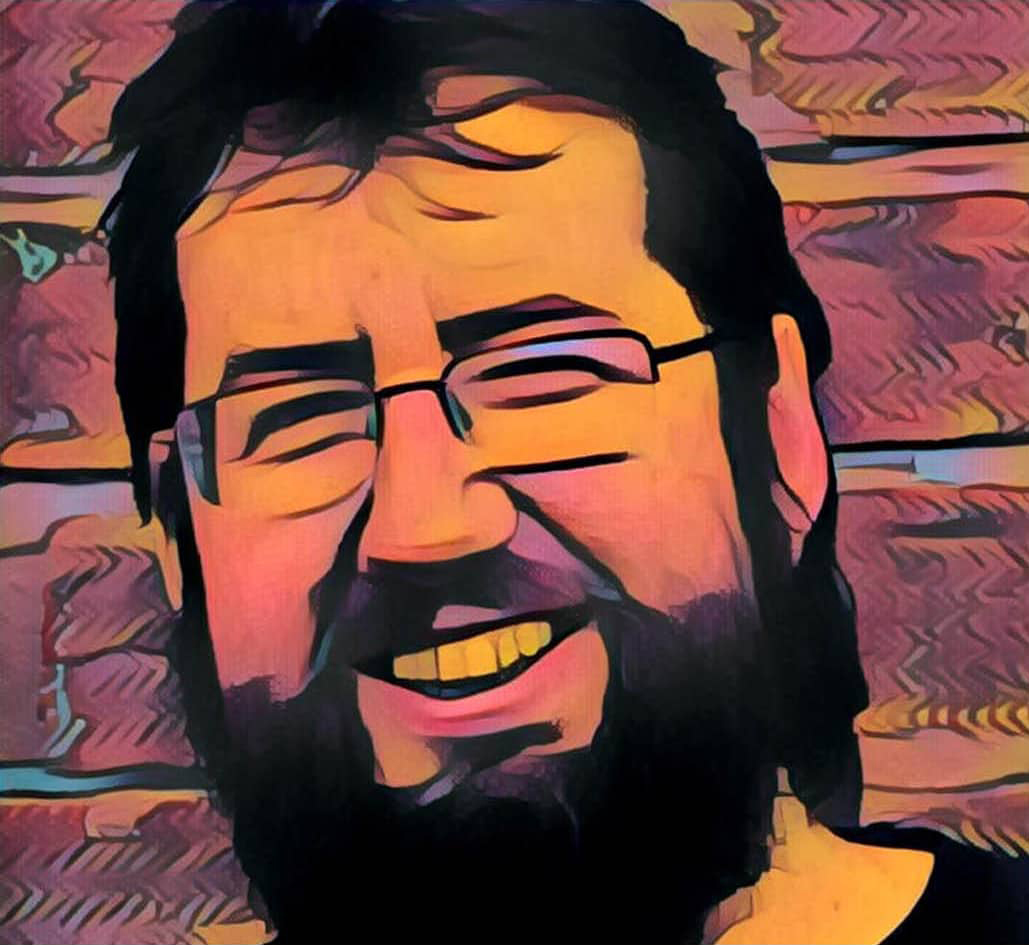
Al Ewing: If there's one guiding philosophy behind all of it - from Guardians of the Galaxy #1 up until now - it's making Marvel Space into a more coherent location.
The Marvel Universe is a shared universe; a place where stories impact on one another and the consequences drive new stories. I'm far from the first to extend that thinking into space, but that is where this is all coming from. When Hulkling united the Kree and the Skrulls [in Empyre], it had knock-on effects on the other space races, and a new Galactic Council was formed. When Knull burned his way through dozens of living worlds, it caused further upheaval, and as a result, the Guardians have been officially recognized as a universal special rescue and response team for the whole galaxy. Every story leads into another that's bigger and more intense.
Get the best comic news, insights, opinions, analysis and more!
The other significance of it all is a gradual shifting of tone that almost happened without my conscious input. I didn't know where all the dominoes were going to fall when I started them toppling - originally, I thought it would lead to a much darker place. But I think as part of my personal response to the past year, I personally needed to tell some stories that weren't quite so dark. Not that brighter stories can't challenge our heroes - or blow you, the reader, out of your chair...
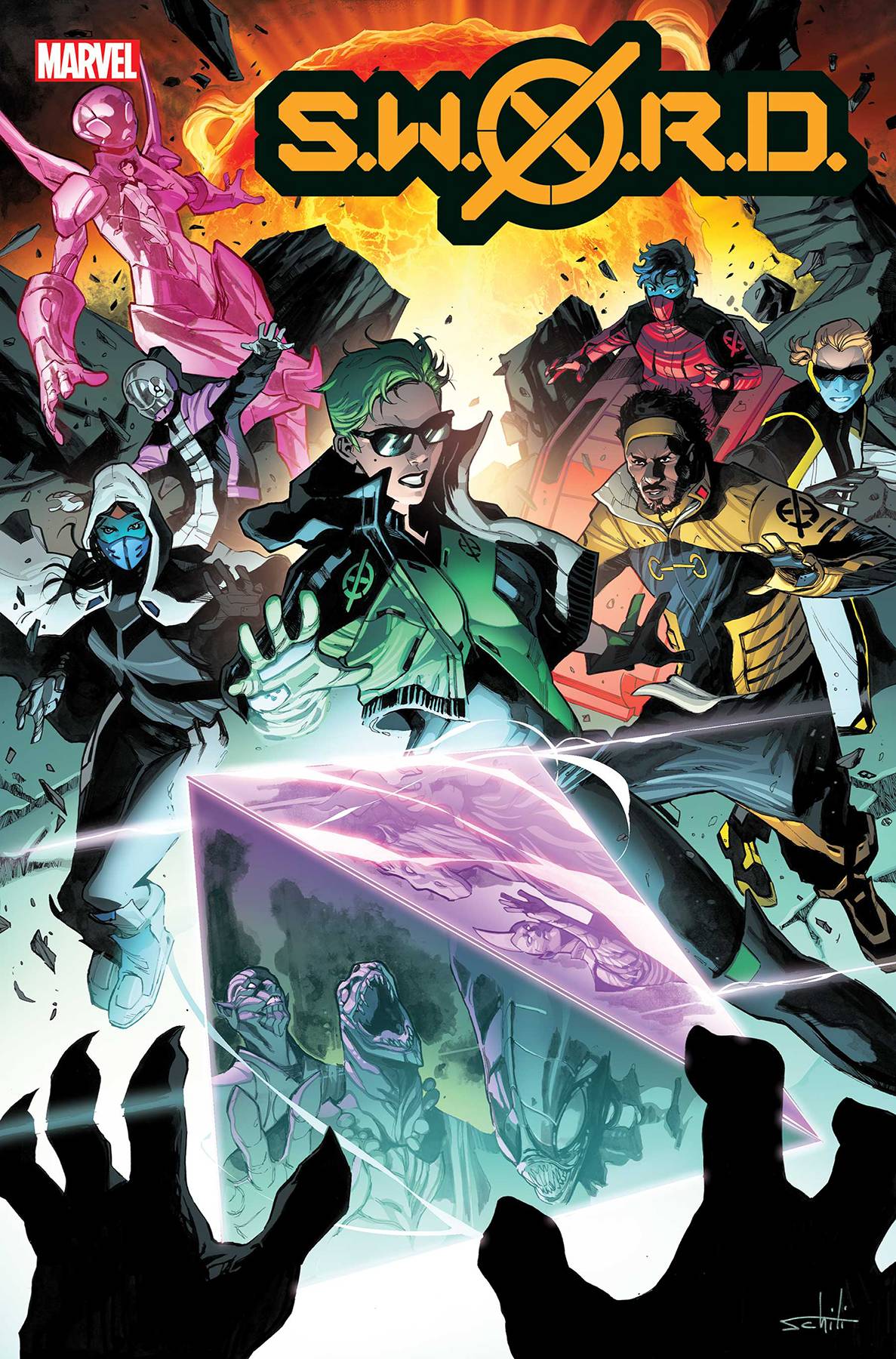
Nrama: Speaking in a general sense, how does the concept of the 'New Age of Space' play out in your ongoing titles Guardians of the Galaxy and SWORD? What's the connective tissue they share beyond the obvious space setting?
Ewing: They're both books about building for the future.
SWORD is the mutant space program - as we've seen, Brand wants to speak for Sol, and she has plans. A lot of plans. Nova - who's almost her opposite number in a strange way, though they both go to the same therapist - has his own ideas, and we've already seen what they look like, and it's a much brighter, more primary-colored vision, less tied to one planet or star. The old-school superhero and the spymaster - their ideas of what the right thing to do is are always going to be very different, and quite soon, they're going to come into contact with each other.
As friends? As foes? You'll have to see for yourself.
Nrama: You've been working in Marvel's cosmic setting for some time now, with titles such as New Avengers and Ultimates, leading to last year's Empyre story. The epilogue of Empyre seemed to set the stage for what's coming. How does the new era continue your previous themes and concepts?
Ewing: I feel like there's 'cosmic' and there's 'cosmic' - Ultimates doesn't really fit in the same bracket as New Avengers, though they share DNA from Mighty Avengers before them. That's because Ultimates was cosmic with the capital C, exploring the ins and outs of Marvel's metaphysics in the seventies style of dealing with these vast, anthropomorphic concepts. That's very different from a book like New Avengers, which operated on the human level.
But I guess I am continuing threads from both - SWORD's been dealing with a new substance called Mysterium that ties to some big concepts, which we're about to loop back around to in a big way, and obviously Guardians is continuing to explore the fallout of Hulkling becoming the King of Space, which is something I've been gently pushing at, when I've been able to, since those New Avengers issues.
I don't think you need to have read those earlier comics - or even earlier Guardians issues, if you'd like to join us at lucky #13 - but the history is there, spiraling back, so if you've been following those threads, this is the next piece of the jigsaw.
Newsarama: What's it like essentially building a line of cosmic titles around this idea? How will the 'New Age of Space' expand beyond Guardians and SWORD?
Ewing: As I said above, it's all about building that coherent location.
(An aside - I'll apologize here to those more continuity-minded than I am, because I've been quietly taking the title of the book literally. I have a reputation for being very continuity-minded myself, but that's only true to a certain point, and the book is called 'Guardians of the Galaxy'... so it's a book that deals with a single galaxy. Anyone with an advanced level of Marvel history knowledge will see a problem there - including, I suspect, some editors - but until I get fired for this blunder, please do whatever you need to to make our single-galaxy setting work in your own head.)
So how will it expand? It'll expand as we need it to, as the vast location we're tending to requires it. There are so many directions this could all go in - just as one example, we have to deal with Henry Gyrich in the big chair at Alpha Flight.
Nrama: As seen over in your Immortal Hulk run.
Ewing: He's the worst, and he's now in full charge of humanity's primary space initiative - and also, he's in deep with ORCHIS, the X-Men's sinister enemies. Where's that going? You'll find out - but trust me, it's somewhere explosive.
Nrama: Marvel has had cosmic revamps leading to new status quos before, as in the Annihilation era. How does the 'New Age of Space' draw on those building blocks, and what sets the new era apart from what's come before?
Ewing: I've got a lot of love for the Annihilation era - I don't think it's going to be news to anyone that a large part of my Guardians run is standing on those giant shoulders. What sets this apart from that is what set the Annihilation era apart from what came before, and the post-Annihilation era apart from that - forward motion.
We're moving forward and building on what's been done before, and that's always the name of the game. In this case, what we've been seeing is the Guardians attempting to navigate out of their recent darkness and towards something a little sunnier, healthier... a healing of wounds. But there are still some dark clouds on the horizon, and they're getting darker and stormier by the second.
Nrama: Beyond a philosophical theme, what does the 'New Age of Space' mean in a material way for Marvel's cosmic titles? How will we see the concept play out in story terms?
Ewing: If we're going to drill right down to the bedrock, what the 'New Age of Space' means - in an absolute, material sense, playing out in story terms - is SUPER AWESOME COMICS. Beyond that - see above.
Newsarama: The first 'New Age of Space' crossover arrives in June, with the agents of SWORD showing up in Guardians ahead of 'The Last Annihilation.' How connected will the titles under the 'New Age of Space' umbrella be, moving forward?
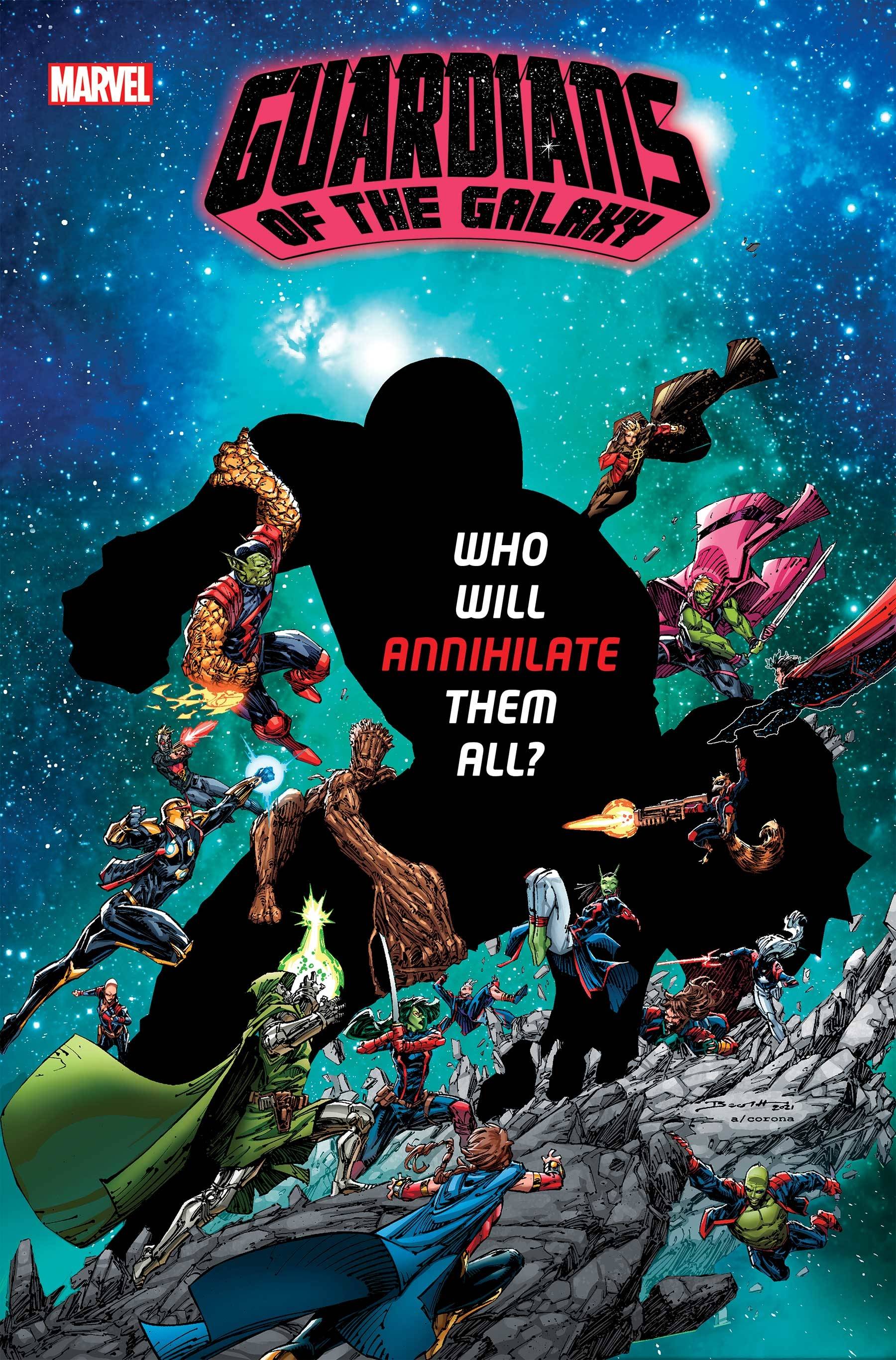
Ewing: As I've said, there's going to be a fair amount of connective tissue. You might spot the Guardians in SWORD, too. And of course, Wiccan and Hulkling are big players in space as well - this is definitely the place to see them in action. Not to mention the place to resolve some lingering questions...
Nrama: On that note, how does that impending 'The Last Annihilation' crossover relate back to the Empyre epilogue, which seemed to show SWORD coming to Hulkling's aid?
Ewing: That was a beat from the future - I can admit here that that future is very much almost upon us, and it's going to connect to some of what we'll see playing out in Guardians. Everything connects, and the things they connect to are some very Big, Bold Moves. If it sounds like I'm being cagey in places, it's because I don't want to spoil just how massive what's coming around the corner is.
Nrama: We've seen the Shi'Ar quite a bit in recent X-Men titles including SWORD, and there's also the ongoing Snarkwar, the Nova Corps, and the recently burgeoning Kree/Skrull Empire in play. What's the overall political situation in space? Who are the other big factions and forces we'll encounter?
Ewing: The overall political situation is a shaky alliance - there aren't any wars in progress aside from the Snarkwar, a war of succession between ultra-violent alien lizards, which is expanding and creating more casualties.
But aside from the Zn'rx, the major factions of the galaxy are just about getting along. But things are fragile - there's an economic crash going on, lots of rebels who don't like the new Shi'ar or Kree/Skrull leadership - it'll take one massive shock in the right place to either unite them for good... or send them crashing into total war. Either way, there are going to be some new players rising to prominence on the galactic stage - from directions you might not expect.
Nrama: Let me ask the underlying question of everything about 'New Age of Space' - what can people expect with 'The Last Annihilation'?
Ewing: I talk a lot about 'connective tissue' - the idea that all of Marvel takes place in the same coherent universe. That's been the selling point of Marvel since the '60s, these knock-on effects - it's what, at least in my opinion, made the movies the global phenomenon they are, the embracing of that idea. And this is an example of the 'shared universe' concept at its purest - the idea that, if everything is connected, if something immense happens in one part of that web of connections it'll have ripple effects elsewhere. Every issue of every comic Marvel puts out is a tie-in to a crossover - we just don't usually mention it.
So people should expect something huge and epic, with that level of connection, but without sacrificing the momentum of the stories already in play. We're going to see how the new superheroic ethos of the Guardians deals with the greatest threat they've faced since - well, the last Annihilation War.
We're going to see SWORD acknowledge that threat, address it, and in true Abigail Brand fashion, use it. And there are going to be some additional stories showing how this impacts elsewhere in the tapestry of Marvel Space - how do Wiccan and Hulkling deal with it? What about the other space civilizations? It's a big story told from multiple angles - but if you just want to see it from one angle, that's okay too.
Nrama: Can you say how connected this is to the original 2006 event Annihilation?
Ewing: It's as connected as Annihilation: Conquest was, back in the day - in that it's not Annihilus, but it is on his level. One of the reasons we called this 'The Last Annihilation' was because we're thinking of it as almost a war to end all wars - win or lose, Marvel Space is going to be changed by this, and we'll be there in one form or another to explore those changes.
Nrama: Is this perhaps connected to the finale of Empyre Aftermath: Avengers we talked about earlier, and the ending of the recent Darkhawk: Heart of the Hawk?
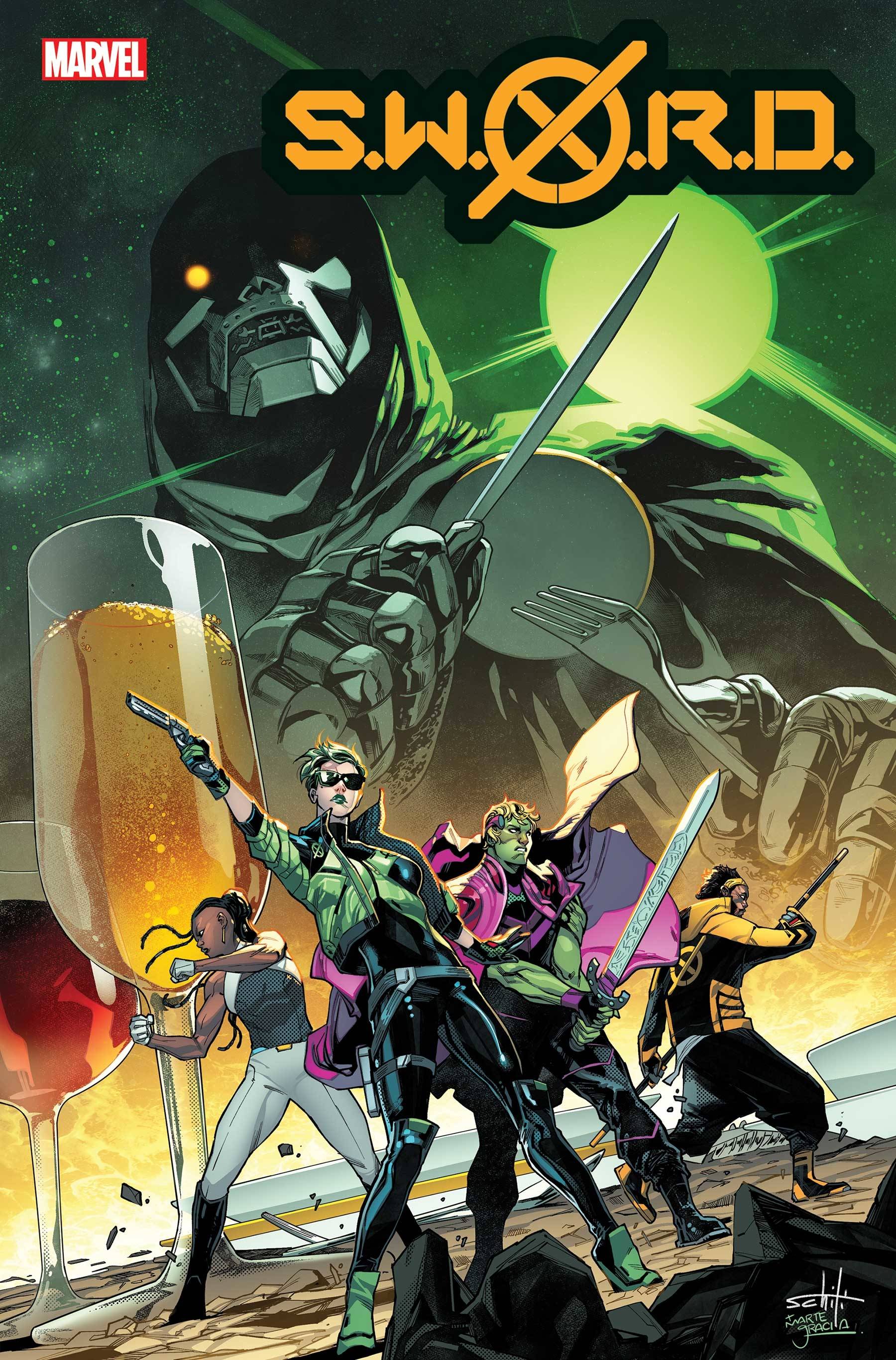
Ewing: It's connected to at least one of them...
Nrama: I can't let you end it like that. Before we go, what clues can you give us about what to look forward to in 'The Last Annihilation'?
Ewing: An enemy that's never been seen in this context before.
Rocket cuts the Gordian Knot.
Doom wages war as only he can.
An old soldier returns to the fight, and a brand new one makes their debut.
Add a pinch of Mysterium, and serve.
Check out our list of the best cosmic comic heroes.
Chris Arrant covered comic book news for Newsarama from 2003 to 2022 (and as editor/senior editor from 2015 to 2022) and has also written for USA Today, Life, Entertainment Weekly, Publisher's Weekly, Marvel Entertainment, TOKYOPOP, AdHouse Books, Cartoon Brew, Bleeding Cool, Comic Shop News, and CBR. He is the author of the book Modern: Masters Cliff Chiang, co-authored Art of Spider-Man Classic, and contributed to Dark Horse/Bedside Press' anthology Pros and (Comic) Cons. He has acted as a judge for the Will Eisner Comic Industry Awards, the Harvey Awards, and the Stan Lee Awards. Chris is a member of the American Library Association's Graphic Novel & Comics Round Table. (He/him)
